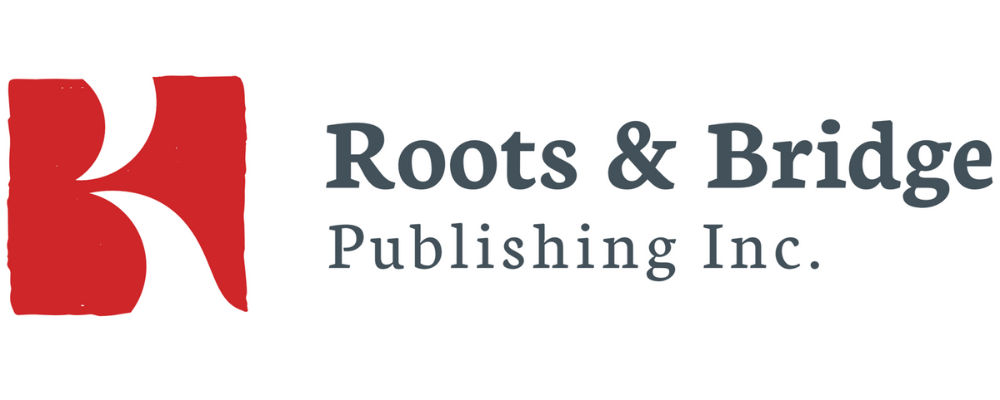Join BookNet Product Coordinator Hannah Johnston and Marketing Associate Nataly Alarcón as they share sales data for print books about anti-racism and social justice in 2020, a brief overview of the efforts related to equity, diversity, and inclusion made in the Canadian book industry, as well as a number of resources available to you — from research reports to Tech Forum presentations — that touch on these topics.
(Scroll down for a transcript of the conversation.)
Want to make sure you never miss an episode of the podcast? You can subscribe for free on iTunes, Stitcher, Pocket Casts, TuneIn, or SoundCloud.
Further reading/listening
Transcript
Nataly Alarcón: Hello BookNet Canada podcast listeners, I’m your host, Nataly Alarcón, the marketing associate at BookNet. Welcome to our February episode.
For this month’s episode, my colleague Hannah Johnston and I have prepared a conversation around diversity. But, given that diversity is such a large topic, we’ll be focusing on the following points:
the first is giving you a brief overview of sales data of print books about anti-racism and social justice in 2020 in the Canadian market;
next, we’ll talk about some of the efforts the Canadian book industry is making as a whole to champion diversity;
followed by sharing highlights from the latest changes made to the BISAC subject codes — many of them relate to the classification needs of books about diverse topics; and
last but not least, we’ll remind you about where to find the resources available to you related to equity, inclusion, and diversity.
Now that you know what to expect, let’s begin!
Using SalesData, BookNet’s sales tracking service for the Canadian English-language print trade book market, we were able to pull month-to-month data for 25 books about race and race-related topics that were featured in multiple reading lists during the summer of 2020. We wanted to see if the events that were happening then had an impact on book-buying. Here’s what we found:
Sales of these books about anti-racism and social justice during the period between January and the end of April trended down. April sales compared to January sales were 190% lower. But that changed completely during the following months. From April to May, sales increased by 87%, and the growth continued. Sales from May to June saw an increase of 955% — yes, you heard that correctly — and in July, sales reached their highest peak of the year: sales increased an additional 14% in the period between June and July.
Despite COVID-19 restrictions and closures, books were selling fast. But things started shifting a bit during the last half of the year.
Sales between July and August saw a decrease of over 57%, but after that period of time, the changes in the number of books sold month-to-month were not as notable. For instance, between August and September, the decrease was close to 25%, followed by a 7% decrease between September and October. But unsurprisingly, things started to head upwards again between November and December when sales increased by 35%, we think early holiday shopping had an important role to play here.
Overall, the average increase in monthly sales in 2020 of the 25 books used as a sample for this analysis was close to 80%. However, it’s important to clarify that because generally books that touch on social justice and race-related topics are classified under different subject categories like History, Social Science, Law, Biography and Autobiography, and so on. It’d be inaccurate to say that this trend is true for a specific subject category.
Despite the ups and downs, the sales of these books are up. I wonder how 2021 will compare to 2020? I guess we’ll have to wait until next December to find out.
And for those who, like us, are curious about library circulation data for books about these same topics, we’ll be sharing graphs, insights, and data pulled from LibraryData in an upcoming blog post. So, we encourage you to subscribe to our weekly newsletter to be the first to read the aforementioned post — the sign up link for eNews, like all other resources mentioned today, will be listed in the episode notes.
Now, I’m going to pass the mic to my colleague Hannah Johnston who will share with you a brief overview of some of the efforts the Canadian book industry is making to become more inclusive, equitable, and diverse.
Hannah Johnston: On September 17, 2020, the Canadian Bibliographic Committee created The Equity, Diversity & Inclusion in Metadata Working Group. It currently counts over 20 members from different parts of the Canadian book industry. The group was chartered to examine how to represent and distribute information about equity, diversity, and inclusion in metadata.
Now that we’re talking about metadata, standards, and books. I’d like to share with you the key changes and updates made to the BISAC subject codes that have a direct impact on diverse books.
For those of you new to BISAC, here’s a quick rundown: BISAC subject codes are updated each year in response to changing usage in the industry and requests submitted to the BISAC Subject Codes Committee. The best practice is to use the most current version of the BISAC subject list to classify both frontlist and backlist titles. If you’re a publisher, it’s typically a good idea to check with retailers before sending out changes, to ensure that their systems are up-to-date and can accept the new codes.
BISAC changes can come in a few different forms: sometimes, the “literal” or descriptive text of a subject heading changes while the code remains the same. In other cases, codes are made inactive or new codes are added.
The 2020 edition includes:
155 new headings (including 12 new cross-reference additions)
123 literal changes to coded headings (including 13 new cross-reference changes)
Two inactivations (three cross-references deleted)
All instances of LGBT were changed to LGBTQ+, resulting in changes in the literals of 38 headings. African American was changed to African American & Black, affecting 19 headings. Hispanic American was replaced by Hispanic & Latino in three headings.
Also of note, BookNet Canada brought forth a proposal to replace the term Native American. The 2020 edition replaces the term Native American with Indigenous Peoples of the Americas where it’s not specifically referring to the United States of America.
Headings were added in 23 sections, with 62% of new headings added to the FICTION tree.
FICTION / Buddhist
FICTION / Disabilities & Special Needs
FICTION / Muslim
FICTION / Own Voices (also added to YOUNG ADULT; intended for works where the main character belongs to an underrepresented or marginalized group and the author is also part of that group)
Nataly: Through the years, BookNet has made available a wide number of resources and research related to diversity, equity, and inclusion. Some of them have been delivered as Tech Forum presentations — which can be found in our YouTube channel — research reports, blog posts, or podcast episodes.
And there will be more, this spring we’ll be publishing a new diversity report featuring data from a survey fielded in 2021, it’ll be an expanded version of our 2019 Demand for Diversity study.
Our Tech Forum 2021 programming will also include sessions that go over these topics — if you’re interested in getting updates from our Tech Forum team, go to the link listed in our notes and sign up to receive the Tech Forum newsletter.
Remember, all those resources are there for you. So use them and share them widely.
Before we go, we’d like to take a moment to acknowledge that BookNet Canada staff, board, and partners operate upon the traditional territories of the Mississaugas of the Credit First Nation, the Anishinaabe, the Haudenosaunee, Wendat, and Huron indigenous peoples, the original nations of this land. We endorse the calls to action from the Truth and Reconciliation Commission of Canada and support an ongoing shift from gatekeeping to space-making in the book industry. And we hope that our work, including this podcast, helps to create an environment that supports that shift. We'd also like to acknowledge the Government of Canada for their financial support through the Canada Book Fund. And of course, thanks to you for listening.














The bestselling Canadian books from July 1, 2024, to July 6, 2025.